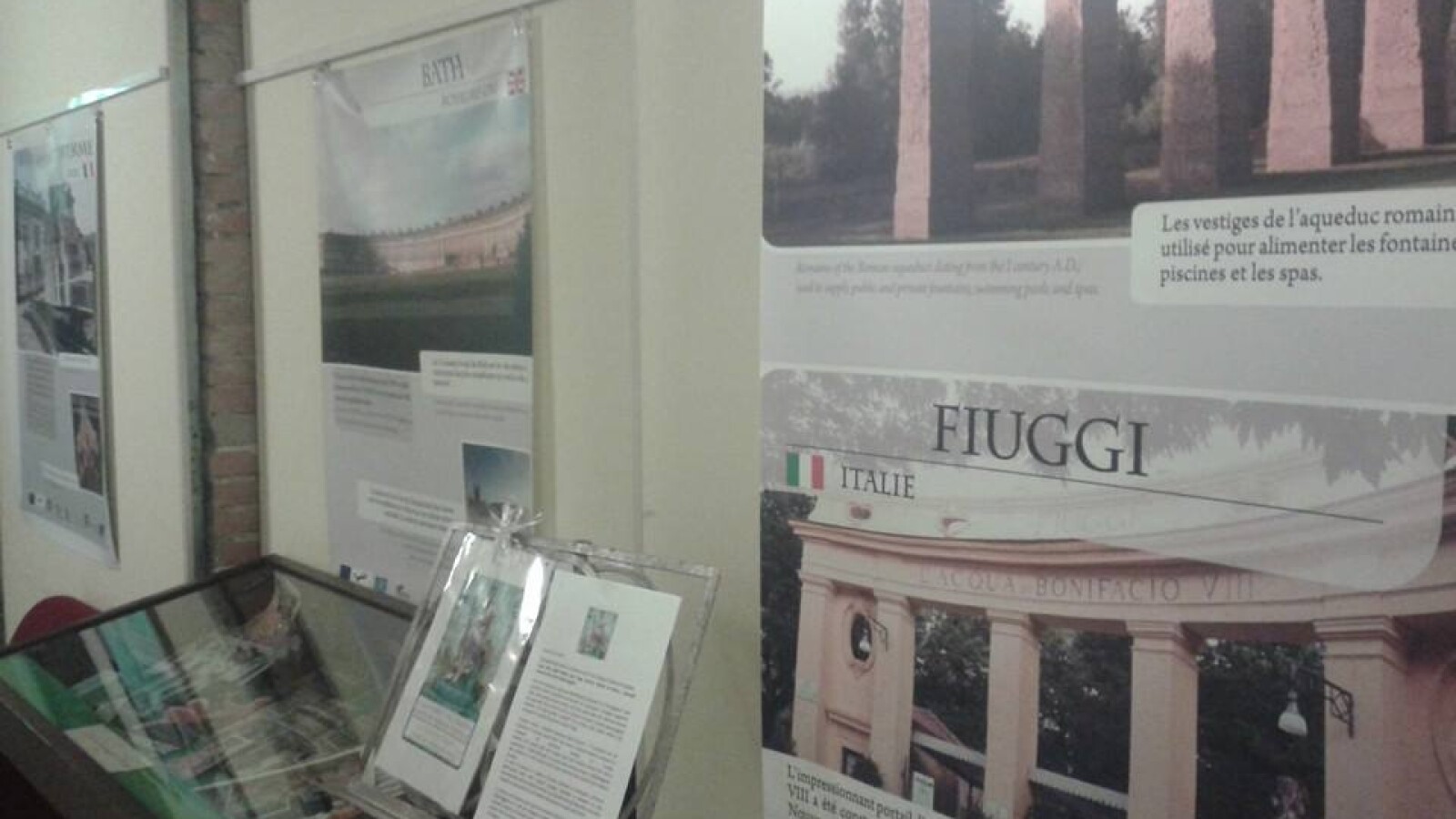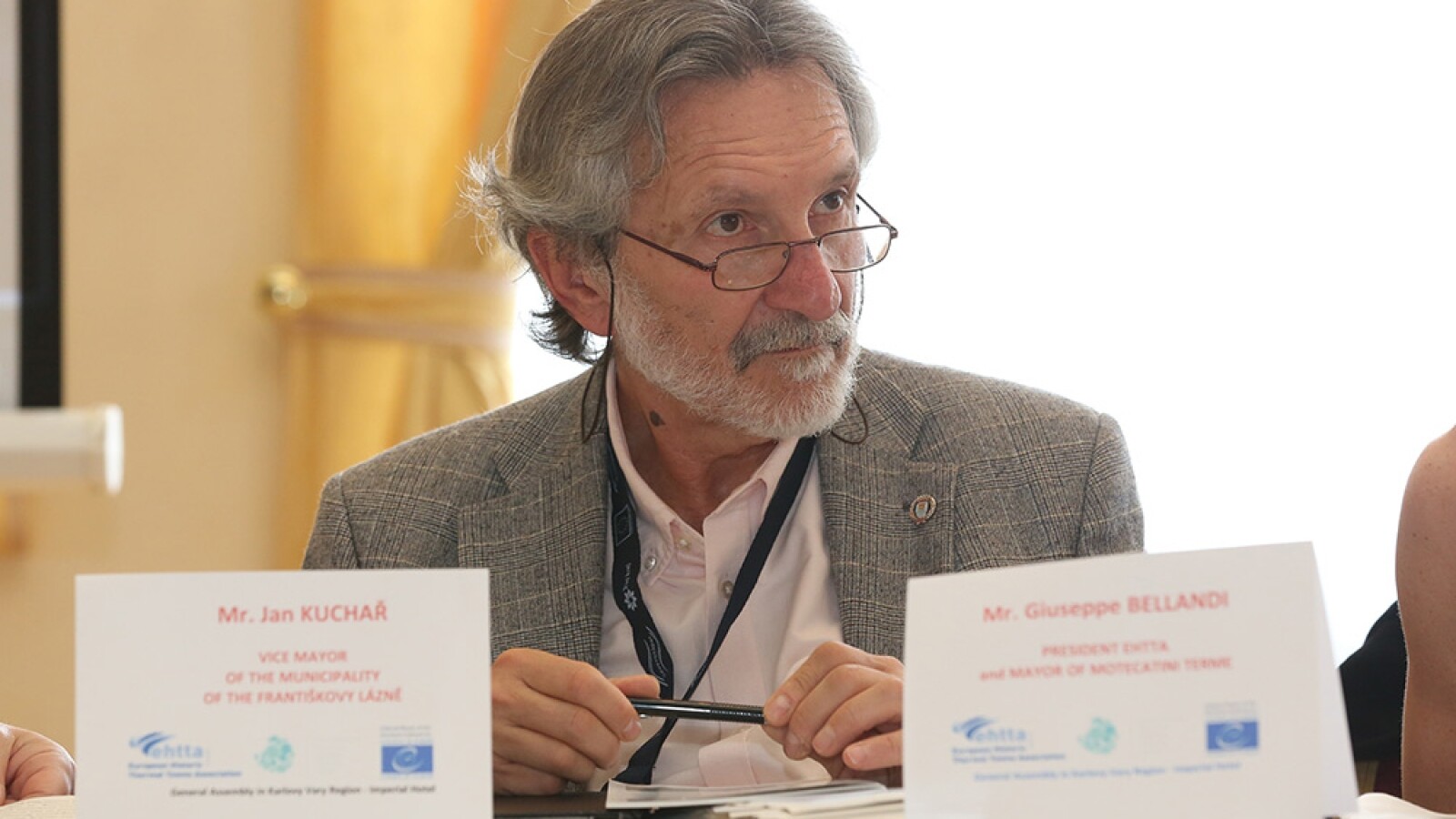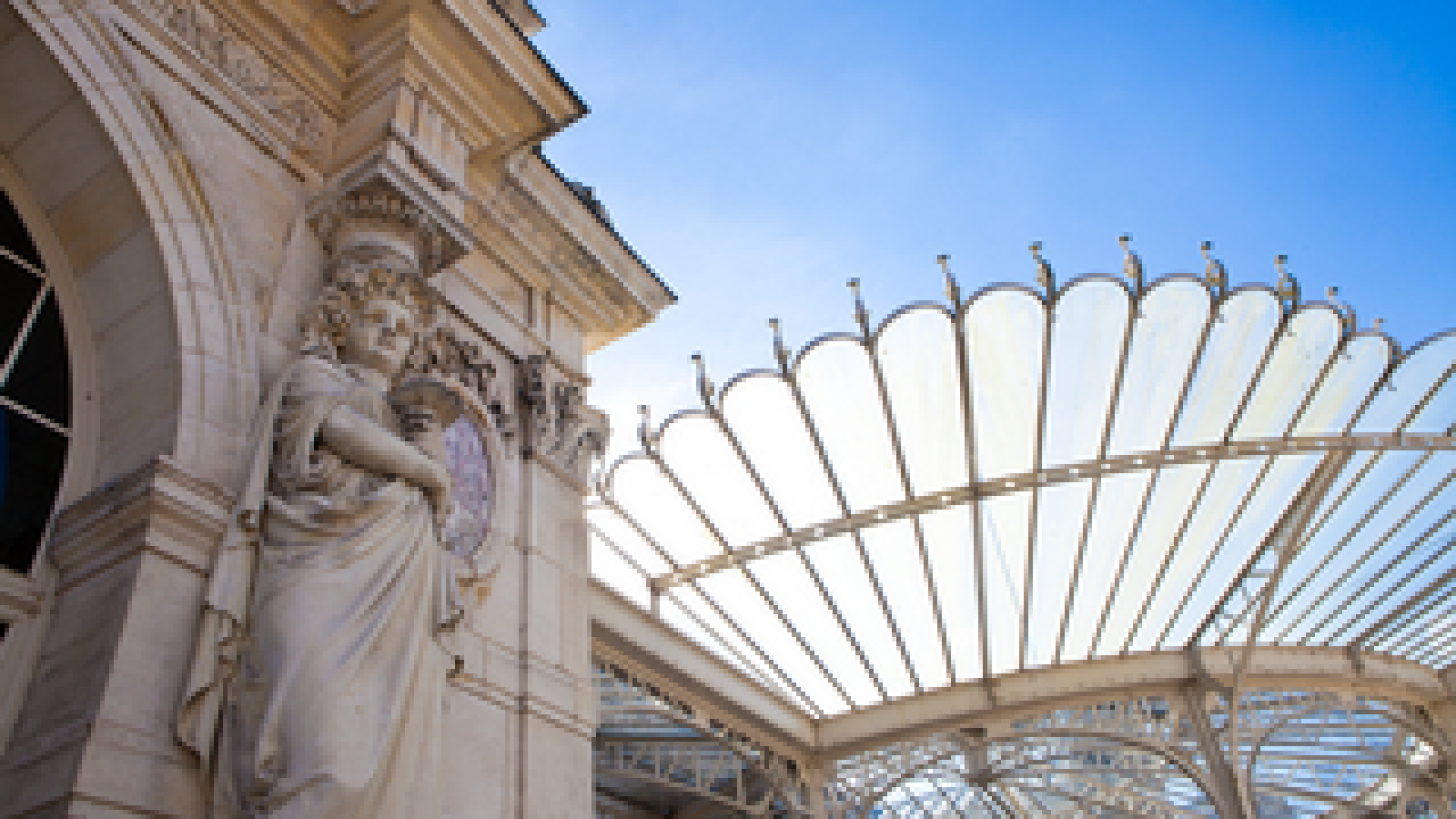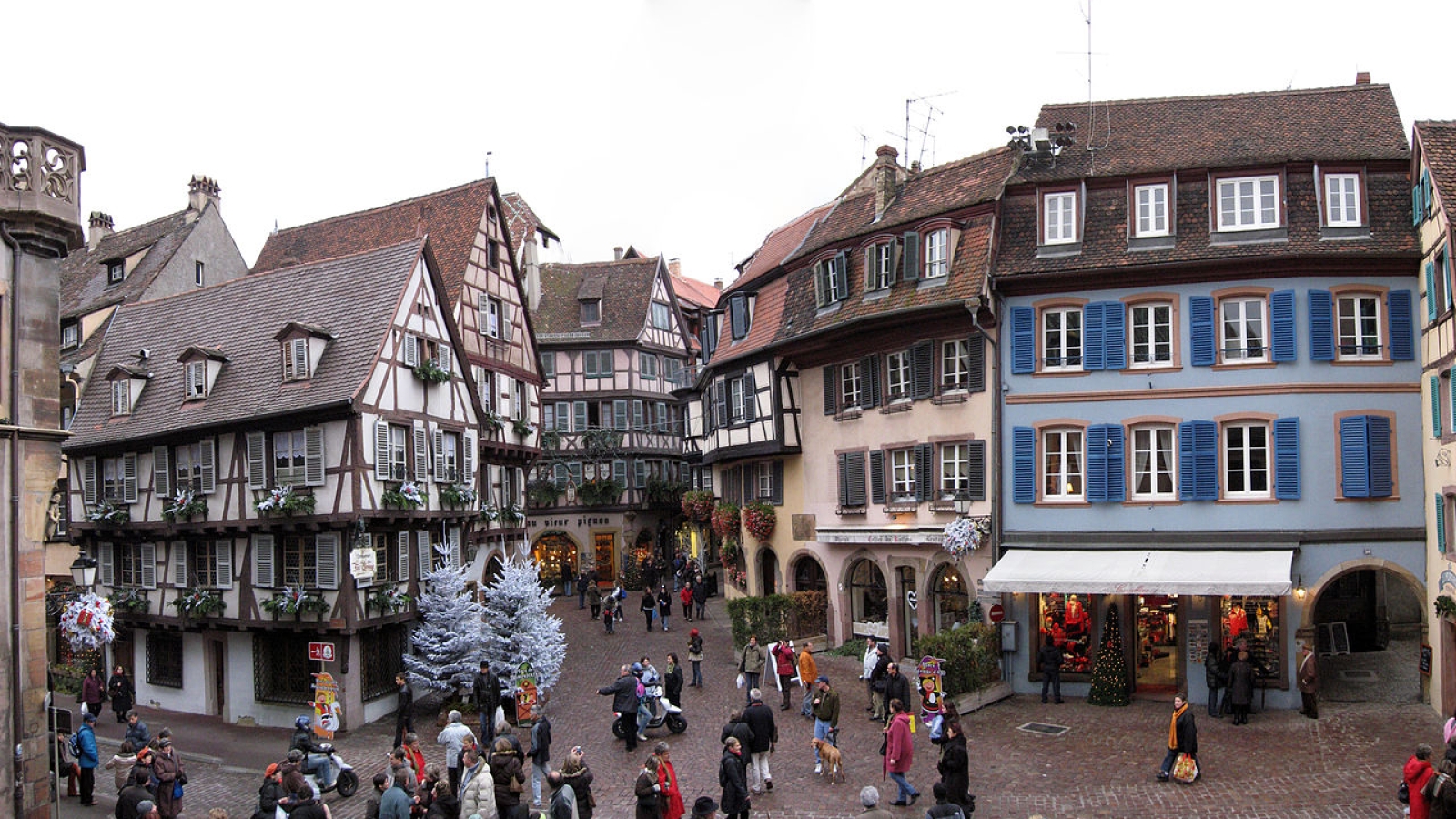Dear friends,
It’s with great pleasure and honour that I accept the candidacy to the EHTTA presidency and I thank you for the confidence you granted me. We will continue working together to achieve new goals and face European challenges, aware of the force that this important network we established in 2009. First I would like to thank the outgoing President Christian Corne for the passion, determination and great sense of responsibility he showed in his mandate. I’m confident he will continue to show his vibrant support to EHTTA in the future, as Honorary President. The tangible results achieved in such a short time show on the one hand the strength of the EHTTA network in terms of political consolidation and sharing of objectives, on the other the valuable support that our European association may have in terms of team and experience.
I’d like to thank the EHTTA staff: Michel Thomas-Penette, General Delegate; Marion Vansingle, project manager and SOURCES project coordinator, Raffaella Caria, executive secretary, Catherine Lloyd for the her competence and precious help she gave us in the preparation of the answer to the Culture programme. I hope that this extraordinary European team can continue to grow and sustain us in the next two years.
Taking up what we already have shared so far in terms of planning, strategic planning and future goals, I would like to express only a few considerations on the axes that we will develop together in the next months:
European dimension and cultural routes program of the Council of Europe: the recognition EHTTA to Cultural Route of the Council of Europe is the starting point around which we will continue carrying out our work. This far sighting “intuitive” program launched in 1987, has entered a crucial phase today thanks to the consolidation of the Enlarged Partial Agreement on Cultural Routes involving 23 countries. This program invites us to foster relations with the European institutions and the national representatives standing for us in Brussels and Strasbourg in order to reinforce the political lobby around the theme thermalism, in all its forms: from traditional thermalism to thermal tourism and well-being.
Local communities and European thermal regions: the expansion of the membership base, which today already boasts 25 members, is an important objective of the next years. To increase the number of cities and city networks (such as Ancot, National Association of Italian Municipalities) EHTTA gives the network a much higher recognition at the European level and in terms of political representation on issues related to hydrotherapy. A challenge that we have to face is the achievement of a greater involvement of European thermal regions: it is to involve in each Country/the Region/s representative on the thermal subject developing appropriate synergies. In this regard we are already engaged in a dialogue with the network NECSTouR that has the Italian Region Tuscany as leader. (Montecatini Terme is part of it)
European projects and EU funding: the project SOURCES financed under Axis Culture represents an important opportunity for dialogue, meeting, promotion and visibility for the network EHTTA and for people who are directly involved. This project becomes a model of itinerant festival around which we can try to characterize future projects in the cultural field. We are also waiting for the new EU Structural Funds 2014-2020 programming in order to evaluate all areas of cooperation and future strategies of action for participation in calls for proposals, though undoubtedly we will take into consideration the areas of tourism, land development and urban planning, youth exchanges between twinned towns.
By next December we await the response of the European Commission for the STAR project, carried out in cooperation with two Cultural Routes of spirituality and pilgrimage of the Council of Europe: Via Francigena and the Camino of Santiago. Other European future projects could always be carried out in cooperation with European Cultural Routes. Our General Delegate Michel Thomas-Penette will continue to support us in this important action.
Scientific Committee and research. The Scientific Committee is one of the necessary conditions to maintain the label of the Council of Europe. Our network needs to strengthen the scientific and research, based on a committee that will ensure expertise and experience embracing the various fields in an interdisciplinary manner. I would like to thank Paul Simons and Michel Thomas-Penette who will represent us at the Forum of Cultural Routes in Innsbruck, the first focus group for dealing with this multidisciplinary challenge.
Communication and visibility: EHTTA is working determinedly to strengthen its communication and visibility with several tools that are made daily available and updated: newsletter, EHTTA and SOURCE websites, facebook, twitter, blogs, dvd.
The goal is two-fold and stands on two levels: that of a greater recognition at European and national level, that of larger visibility in the local territories, also through a homogeneous signposting system, clear and readable and should highlight our European network. Increased communication will also aim to involve the social fabric of our local communities.
EHTTA and the network of cultural routes of the Council of Europe represent a great opportunity for development of “minor” territories and sustainable tourism, creating important sustainable economies that can promote employment, welfare and development.
We also know that the European Commission takes into particular consideration our project and our network of thermal towns, not surprisingly, in fact, the Commissioner Antonio Tajani explicitly mentioned it on the occasion of the European Day of Tourism which was held in Budapest in May 2011, indicating the EHTTA as a model of good practice for sustainable and tourist development of territories.
In recent years all over Europe has grown exponentially the value and importance of thermalism that is becoming a very flourishing tourism sector. The European Commission is also actively supporting many initiatives related to the development of the spa industry in all countries of Europe because the latest demographic data show that it is expanding and that it is actually aimed at people of all age groups. There are four categories into which we shall try to extend the tourism sector and the benefits of the thermal waters: 1. young people between 18 and 30 years old, 2. senior, 3. individuals with disabilities, and finally, 4. low-income families who do not have to give up for this short break to relax.
With this I have just concluded my presentation; I am feeling a little emotional but confident and full of expectations.
It is understated that EHTTA is continuously growing and is attracting major attention within the European institutions thanks to the precious commitment carried out by each member of the network.
I thank you for your attention, sure of your collaboration to work together as a TEAM for the following two years of my mandate.
Giuseppe Bellandi




